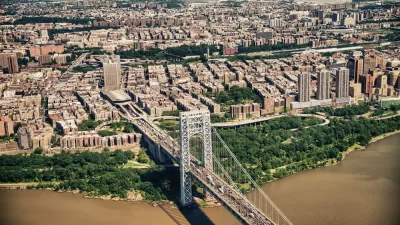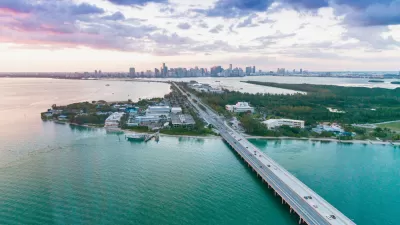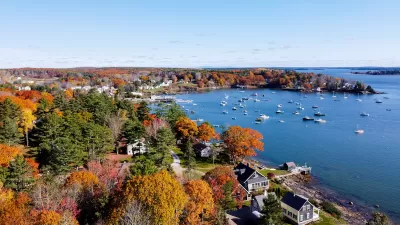A self-identified conservative who supports the “broader vision of smart growth” has identified a reason why more conservatives don’t support smart growth: the political economy of sprawl.
In an article following on a recent post by Richard Florida about the political divide between urban and suburban America, James Bacon proclaims, “I’m one of the world’s few conservatives who supports the broader vision of the Smart Growth movement.”
“I have articulated a vision of Smart Growth that is based upon the principles of fiscal conservatism, limited government and free markets. But not many people are buying it,” says Bacon.
Why not? “The reason, I think, can be traced to the political economy of sprawl. Republicans, the party that nominally stands for fiscal conservatism and free markets but rarely governs that way, comprise the party of sprawl. (By “sprawl” I mean the scattered, low-density, autocentric pattern of development that prevailed during the post-World War II era.) Republican voters tend to live in communities born of sprawl, benefit from the subsidies and cross-subsidies that perpetuate sprawl, don’t want to change the way they live and don’t want to give up the subsidies.”
Bacon, like Planetizen blogger Michael Lewyn before, also directs our attention to the Smart Growth for Conservatives blog, for more solidarity for his arguments.
FULL STORY: The Political Economy of Sprawl

Planetizen Federal Action Tracker
A weekly monitor of how Trump’s orders and actions are impacting planners and planning in America.

Map: Where Senate Republicans Want to Sell Your Public Lands
For public land advocates, the Senate Republicans’ proposal to sell millions of acres of public land in the West is “the biggest fight of their careers.”

Restaurant Patios Were a Pandemic Win — Why Were They so Hard to Keep?
Social distancing requirements and changes in travel patterns prompted cities to pilot new uses for street and sidewalk space. Then it got complicated.

Platform Pilsner: Vancouver Transit Agency Releases... a Beer?
TransLink will receive a portion of every sale of the four-pack.

Toronto Weighs Cheaper Transit, Parking Hikes for Major Events
Special event rates would take effect during large festivals, sports games and concerts to ‘discourage driving, manage congestion and free up space for transit.”

Berlin to Consider Car-Free Zone Larger Than Manhattan
The area bound by the 22-mile Ringbahn would still allow 12 uses of a private automobile per year per person, and several other exemptions.
Urban Design for Planners 1: Software Tools
This six-course series explores essential urban design concepts using open source software and equips planners with the tools they need to participate fully in the urban design process.
Planning for Universal Design
Learn the tools for implementing Universal Design in planning regulations.
Heyer Gruel & Associates PA
JM Goldson LLC
Custer County Colorado
City of Camden Redevelopment Agency
City of Astoria
Transportation Research & Education Center (TREC) at Portland State University
Camden Redevelopment Agency
City of Claremont
Municipality of Princeton (NJ)





























